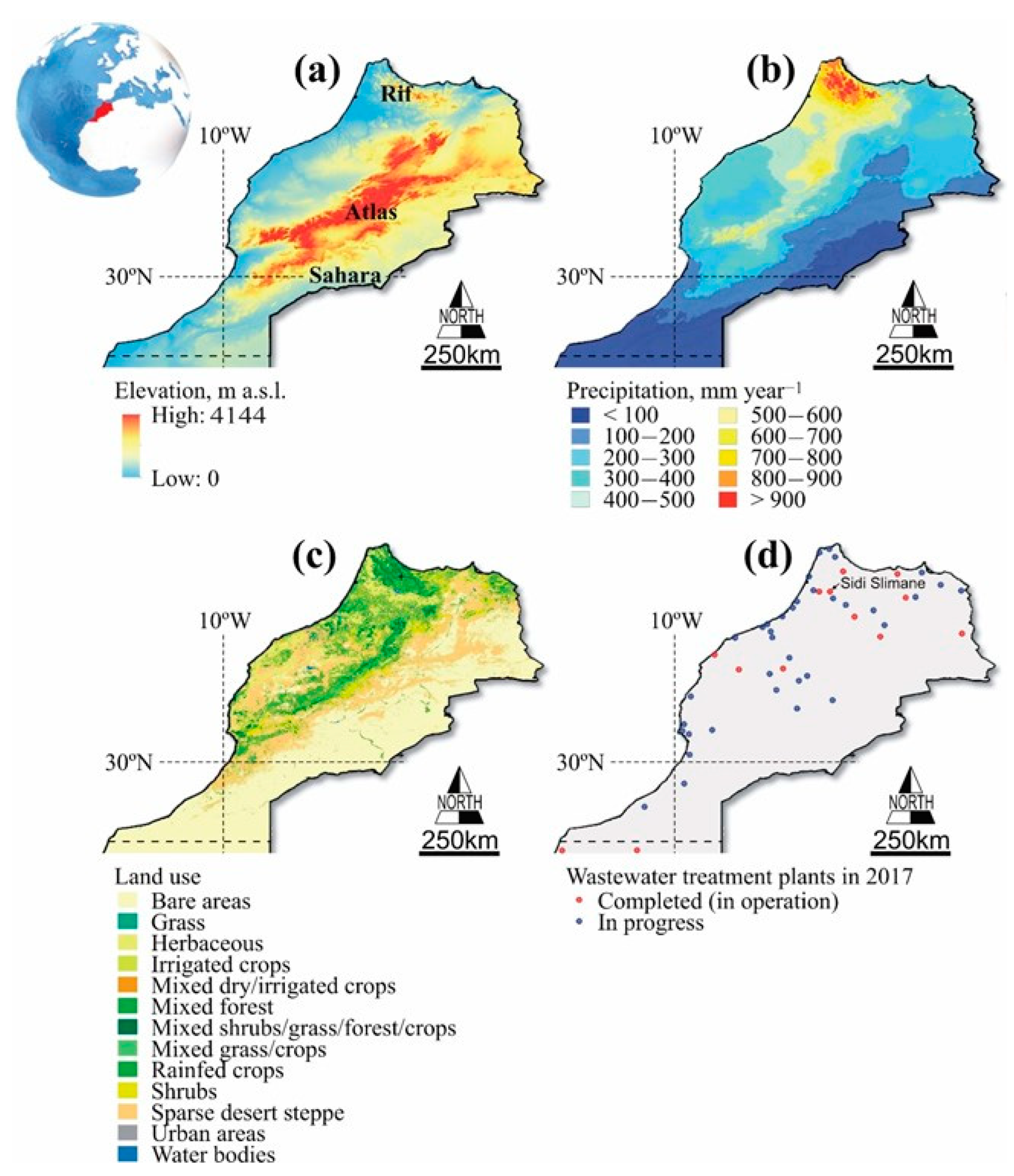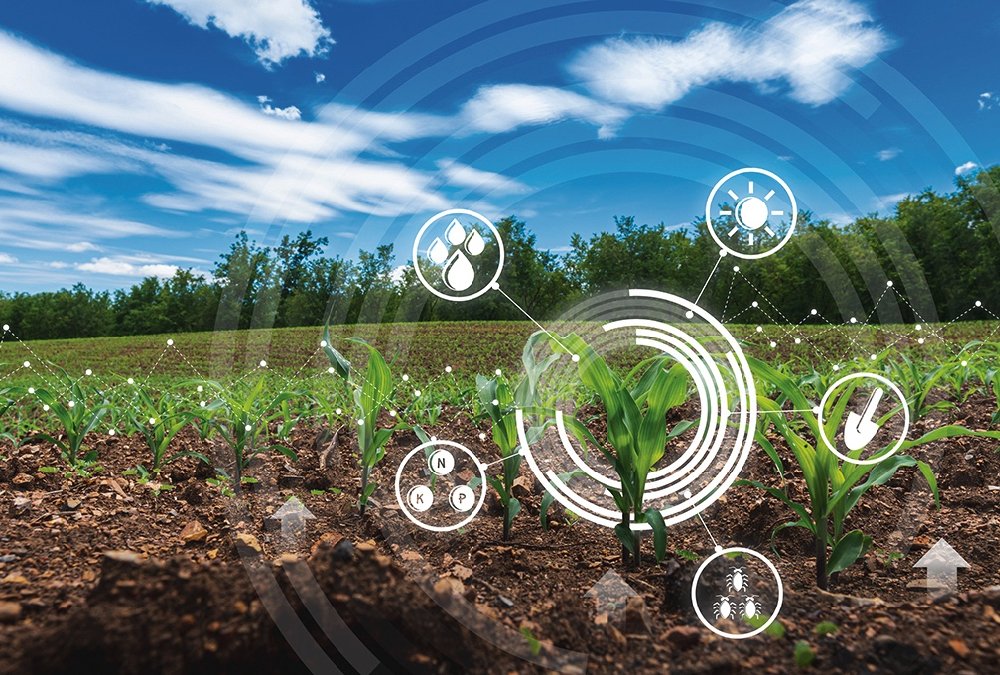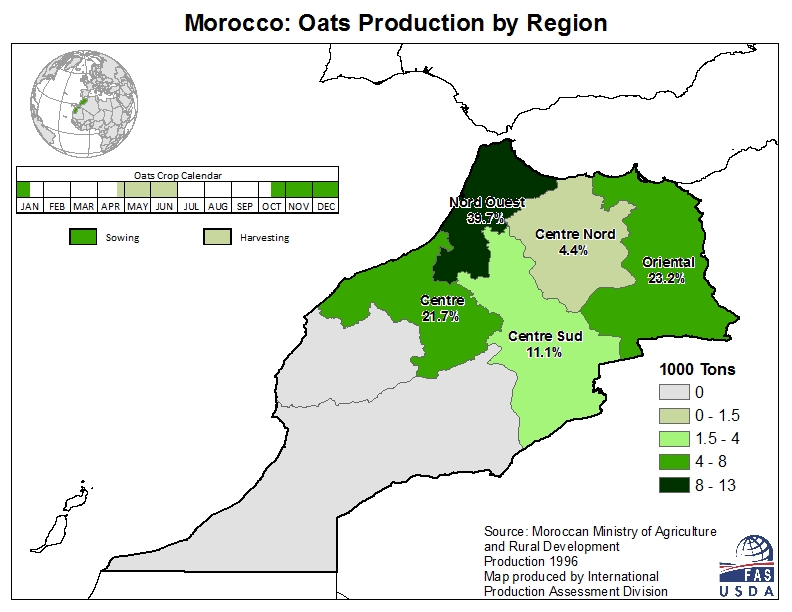SMAP Maroc: Navigating the Complexities of Moroccan Agriculture
Related Articles: SMAP Maroc: Navigating the Complexities of Moroccan Agriculture
Introduction
In this auspicious occasion, we are delighted to delve into the intriguing topic related to SMAP Maroc: Navigating the Complexities of Moroccan Agriculture. Let’s weave interesting information and offer fresh perspectives to the readers.
Table of Content
SMAP Maroc: Navigating the Complexities of Moroccan Agriculture

SMAP Maroc, or the Moroccan Agricultural Market Information System, is a comprehensive platform designed to enhance the efficiency and transparency of the agricultural sector in Morocco. Launched in 2008, SMAP Maroc serves as a vital tool for stakeholders ranging from farmers and producers to traders, consumers, and policymakers. Its significance lies in its ability to bridge the information gap within the agricultural value chain, empowering informed decision-making and fostering sustainable development within the sector.
Understanding the Need for SMAP Maroc
Morocco’s agricultural sector plays a crucial role in the national economy, contributing significantly to employment, food security, and rural development. However, the sector faces several challenges, including:
- Limited Market Access: Farmers often struggle to access reliable market information, leading to price volatility and limited bargaining power.
- Information Asymmetry: A lack of transparency in market dynamics hinders efficient decision-making, impacting production, pricing, and distribution.
- Inefficient Supply Chains: Fragmented supply chains result in high transportation costs, spoilage, and market inefficiencies.
- Limited Access to Finance: Farmers often face difficulties securing financing due to a lack of reliable data and credit history.
SMAP Maroc addresses these challenges by providing a centralized platform for information exchange and data analysis. It offers a range of services designed to improve market transparency, streamline supply chains, and empower stakeholders with the necessary tools to make informed decisions.
Key Features and Functionality of SMAP Maroc
SMAP Maroc operates on a multi-layered platform, encompassing various features to cater to the diverse needs of stakeholders:
1. Market Information Portal:
- Real-time Market Prices: Provides up-to-date prices for various agricultural commodities across different regions.
- Supply and Demand Analysis: Offers insights into market trends, production forecasts, and consumer demand.
- Market News and Reports: Disseminates relevant news, research findings, and market analyses.
- Agricultural Calendar: Provides information on planting seasons, harvesting periods, and other crucial agricultural events.
2. Electronic Trading Platform:
- Online Marketplaces: Facilitates direct interactions between buyers and sellers, reducing intermediaries and transaction costs.
- Auction System: Enables transparent price discovery through competitive bidding, promoting fairness and efficiency.
- Contract Management: Enables secure and efficient management of agricultural contracts, ensuring accountability and transparency.
3. Data Collection and Analysis:
- Field Data Collection: Utilizes mobile technology to collect real-time data on crop production, livestock health, and weather conditions.
- Data Analysis and Reporting: Provides comprehensive analysis of market trends, production patterns, and other relevant agricultural data.
- Geographical Information System (GIS): Integrates spatial data to visualize market dynamics, analyze regional trends, and optimize resource allocation.
4. Training and Capacity Building:
- Workshops and Training Programs: Offers training to farmers, traders, and other stakeholders on utilizing SMAP Maroc effectively.
- Technical Assistance: Provides support to farmers in accessing financial resources, improving production practices, and marketing their products.
- Information Dissemination: Utilizes various communication channels to disseminate information and raise awareness about the benefits of SMAP Maroc.
Benefits of SMAP Maroc
The implementation of SMAP Maroc has yielded significant benefits for various stakeholders within the Moroccan agricultural sector:
For Farmers:
- Improved Market Access: Enables farmers to access wider markets and negotiate better prices for their produce.
- Enhanced Decision-Making: Provides access to real-time market information, enabling farmers to make informed decisions on production, pricing, and marketing.
- Increased Income: Enables farmers to optimize their production and market their products efficiently, leading to higher incomes.
- Access to Finance: Improved transparency and data availability facilitates access to loans and other financial services.
For Traders and Processors:
- Efficient Supply Chain Management: Enables efficient sourcing of agricultural commodities and reduces transaction costs.
- Improved Market Intelligence: Provides insights into market trends and consumer preferences, facilitating informed purchasing and processing decisions.
- Reduced Risk: Minimizes price volatility and market uncertainty, leading to more stable and profitable operations.
For Consumers:
- Access to Quality Products: Enables consumers to access fresh and affordable agricultural products.
- Increased Food Security: Contributes to a more stable and reliable food supply chain, ensuring food security for the population.
For Policymakers:
- Informed Policy Development: Provides valuable data and insights to inform agricultural policies and interventions.
- Monitoring and Evaluation: Facilitates monitoring the effectiveness of agricultural programs and interventions.
- Sustainable Development: Supports the development of a more sustainable and competitive agricultural sector.
Challenges and Future Directions
Despite its significant contributions, SMAP Maroc continues to face challenges that require ongoing efforts to enhance its effectiveness:
- Digital Divide: Bridging the digital divide and ensuring access to technology for all stakeholders remains a critical concern.
- Data Quality and Accuracy: Ensuring data quality and accuracy is crucial for the reliability of the platform’s information and analyses.
- User Engagement and Adoption: Encouraging widespread adoption and engagement among stakeholders is essential for the platform’s success.
- Integration with Other Systems: Seamless integration with other agricultural information systems and databases is vital for a holistic approach to data management.
Moving forward, SMAP Maroc aims to address these challenges by:
- Expanding its reach: Increasing the number of users and extending its coverage to include more agricultural commodities and regions.
- Improving data quality: Implementing robust data validation and verification processes to ensure accuracy and reliability.
- Strengthening user support: Providing comprehensive training and technical assistance to empower users and encourage active engagement.
- Promoting interoperability: Facilitating seamless integration with other agricultural information systems to enhance data sharing and collaboration.
FAQs by SMAP Maroc
Q1: What is the purpose of SMAP Maroc?
A: SMAP Maroc aims to enhance the efficiency and transparency of the agricultural sector in Morocco by providing a centralized platform for market information, electronic trading, data analysis, and capacity building.
Q2: Who can benefit from using SMAP Maroc?
A: SMAP Maroc benefits a wide range of stakeholders, including farmers, traders, processors, consumers, and policymakers.
Q3: How can I access SMAP Maroc?
A: SMAP Maroc is accessible through its website and mobile application, offering a user-friendly interface for accessing its services.
Q4: What types of information are available on SMAP Maroc?
A: SMAP Maroc provides real-time market prices, supply and demand analysis, market news and reports, agricultural calendar, and other relevant data.
Q5: How can SMAP Maroc help me improve my farming practices?
A: SMAP Maroc provides access to market information, production forecasts, and technical assistance, enabling farmers to make informed decisions and optimize their production.
Q6: How can I participate in the electronic trading platform on SMAP Maroc?
A: To participate in the electronic trading platform, users need to register on the SMAP Maroc website and complete the necessary verification procedures.
Q7: What measures are in place to ensure the security of data on SMAP Maroc?
A: SMAP Maroc utilizes robust security measures, including encryption, access control, and regular security audits, to protect user data and maintain platform integrity.
Tips by SMAP Maroc
- Stay informed: Regularly access SMAP Maroc to stay updated on market trends, prices, and other relevant information.
- Utilize the platform’s features: Explore the various features and services offered by SMAP Maroc to optimize your agricultural activities.
- Participate in training programs: Attend training sessions and workshops to learn how to effectively use SMAP Maroc and its functionalities.
- Share your feedback: Provide feedback and suggestions to help improve SMAP Maroc’s services and cater to your specific needs.
- Network with other users: Connect with other stakeholders on the platform to share information, collaborate, and explore new opportunities.
Conclusion by SMAP Maroc
SMAP Maroc stands as a testament to Morocco’s commitment to modernizing its agricultural sector and leveraging technology to drive sustainable development. By promoting transparency, efficiency, and informed decision-making, SMAP Maroc plays a vital role in empowering stakeholders, fostering market competitiveness, and ensuring a more secure and prosperous future for Moroccan agriculture. The platform’s continued evolution and expansion will undoubtedly contribute to the sector’s growth and contribute significantly to Morocco’s socio-economic development.








Closure
Thus, we hope this article has provided valuable insights into SMAP Maroc: Navigating the Complexities of Moroccan Agriculture. We thank you for taking the time to read this article. See you in our next article!